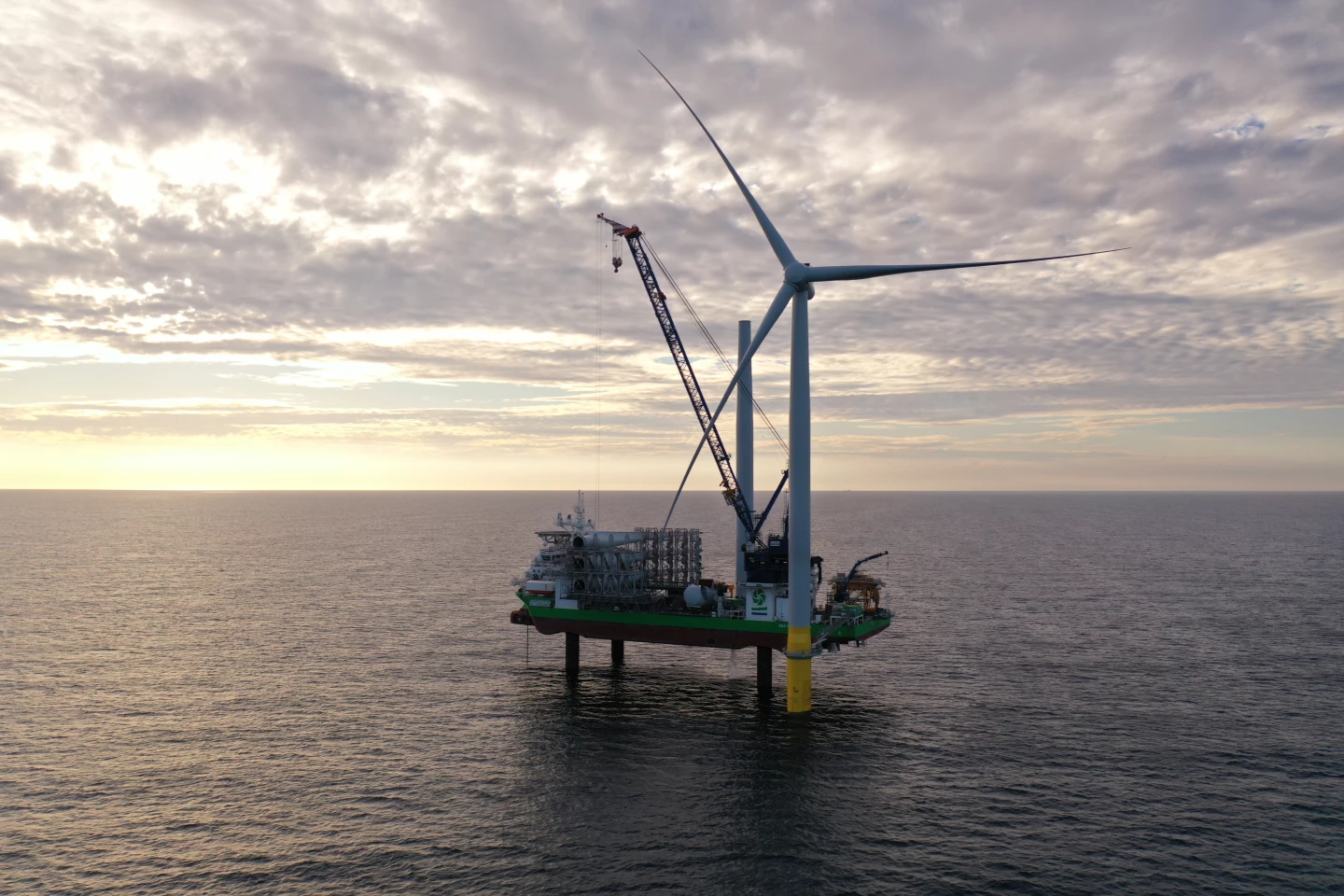The switch has been flicked on a wind farm off the shore of the UK of unprecedented scale, with Danish energy firm Orsted announcing that Hornsea 2 has produced its first power. It is expected to become fully operational next year as the world's biggest offshore wind farm, and provide enough power for more than 1.3 million homes in the UK.
The Hornsea 2 project was approved back in 2016 as an addition to the Hornsea 1 project, which became commercially operational last year as the largest offshore wind farm in the world, with 174 turbines and a 1.2-GW capacity that provides power to over one million UK homes.
Taking the "world's largest" title with its 1.32-GW capacity, Hornsea 2 is located 89 km (55 miles) off the east coast of the UK and features 165 of Siemens' Gamesa 8-MW wind turbines. The offshore substation and reactive compensation station were installed in October this year, allowing operator Orsted to achieve the farm's first power.
When fully completed, Hornsea 2 will send wind power back to shore via more than 800 km (497 miles) of cabling, connecting to the national grid at the village of Killingholme. Together with its sibling Hornsea 1, the farms are expected to provide enough power for more than 2.3 million homes. Also in the works is Hornsea 3, which received a Development Consent Order last year and will power more than two million homes, and Hornsea 4, which is currently in the planning phase.

“Achieving first power is an important milestone for the project and a proud moment for the whole team," says Patrick Harnett, Programme Director for Hornsea 2. "Constructing a project of this size and scale is only possible through strong collaboration, hard work, and dedication. From here, we have the finishing line in sight as we install the remaining turbines and continue testing, commissioning, and energizing our wind farm into the new year. A huge well done to everyone who has worked through the pandemic to keep the project on track.”
While these farms at Hornsea are the biggest of their type, the world of offshore wind is a fast-moving one, with the "world's largest" title changing hands a number of times over the past decade or so. The 630-MW London Array came online in 2013 to take the mantle from the 500-MW Greater Gabbard Offshore Wind Farm, before the 659-MW Walney offshore wind farm then claimed it in 2018.
Last year, we saw construction kick off on the Dogger Bank Wind Farm near the coastal village of Ulrome in England. It will feature the world's largest offshore wind turbine, the 853-ft-tall (260-m), 14-MW Haliade-X, built by GE Renewable Energy, and have a capacity of 3.6 GW after its completion in 2026, when it is expected to become the largest wind farm in the world and provide the UK with five percent of its total energy needs.
Source: Orsted





